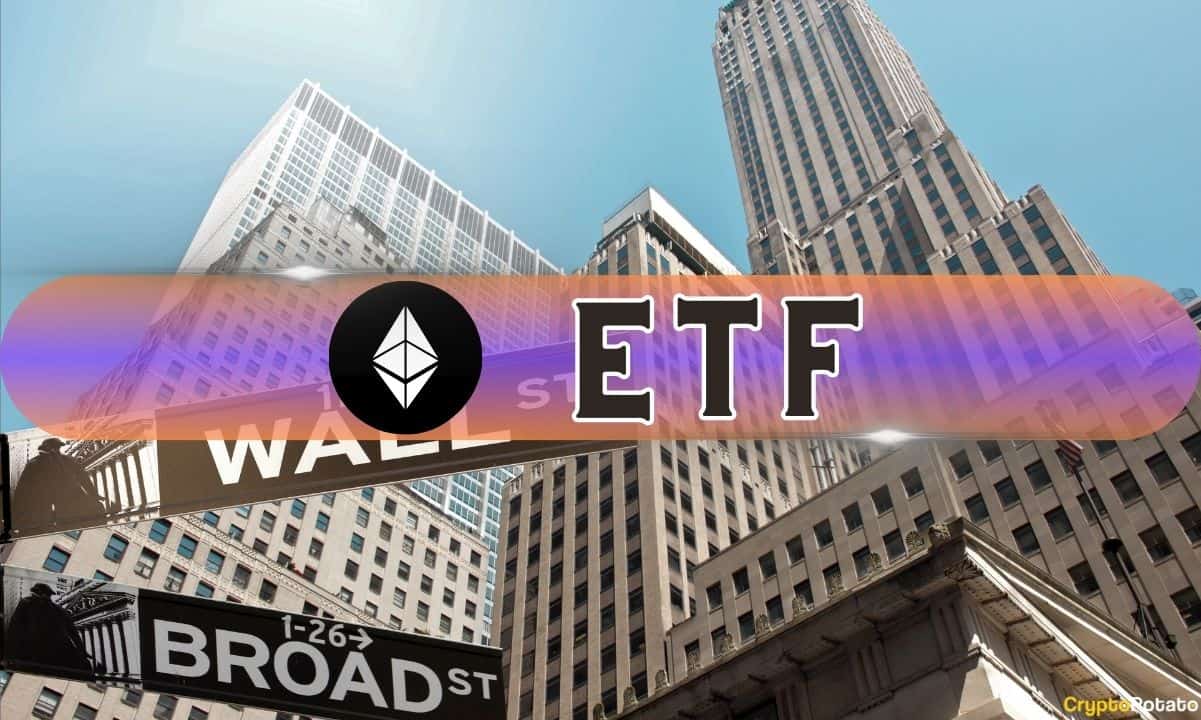
U.S. regulators will likely reject Ethereum (ETH) spot ETFs – and crypto won’t put up much of a legal fight for it, according to Bloomberg ETF analyst Eric Balchunas.
The analyst’s latest take is a discouraging sign for Ethereum bulls and stands in stark contrast to his former optimism about Bitcoin spot ETFs preceding their January approval.
Are Ethereum ETFs Worth Fighting For?
In a Wednesday tweet, Balchunas addressed a common theory that the crypto industry will sue the Securities and Exchange Commission (SEC) if it refuses to approve ETH spot ETFs by May, which is its final deadline to deliver a verdict for several applicants.
“I would question this as Ether futures only ETFs have 4% of the assets that bitcoin futures have,” Balchunas wrote. “That’s a lot of time and money for something that may only get a fraction of the aum.”
The ProShares Bitcoin Strategy ETF (BITO) – the nation’s first Bitcoin futures ETF – hauled $1 billion within its first two days of launch in 2021. It now holds $2.7 billion worth of Bitcoin futures contracts, while its largest leveraged rival holds another $1.6 billion.
By comparison, the ProShares Ether Strategy ETF launched roughly two years later pulled a dearth of the same investor interest, and now only holds a $72 million AUM. It’s a potential sign that institutional investors don’t have the same appetite for the second-largest digital asset.
Prior comments from sponsors of some of the largest Bitcoin ETFs would corroborate this claim. Bitwise CIO Matt Hougan wrote last month that Ether ETFs might gather more steam if launched well after their Bitcoin counterparts, and that BTC is “in a class of its own” regarding institutional interest.
Furthermore, Robert Mitchnick – BlackRock’s Head of Digital Assets – said in March that Bitcoin is “overwhelmingly the number one priority” for crypto exposure among its client base. “Then a little bit of Ethereum, and very little everything else,” he added.
What Does Grayscale Want?
Contrarily, Ethereum bulls say comparing the performance of futures ETFs isn’t appropriate – especially given the vastly different timings of their launch.
“The better comparison here is GBTC and ETHE where GBTC was $30bil assets under management pre conversion (Jan 10th) and ETHE was $7.3bil,” tweeted sassal.eth in early March.
The SEC was formerly opposed to Bitcoin spot ETFs, alleging that such funds were more vulnerable to market manipulation compared to their futures-based counterparts.
A year-long lawsuit brought by Grayscale forced them to reverse that stance, and ETFs were subsequently approved. Ironically, however, the increased competition brought by the approvals has contributed to the Grayscale Bitcoin Trust (GBTC) losing nearly half of its Bitcoin within three months.
“You really think Grayscale is gonna want to foot the legal bill for another BlackRock smash hit and more outflows for something that is clearly going to be much smaller opp?” Balchunas added.
This article first appeared at CryptoPotato

